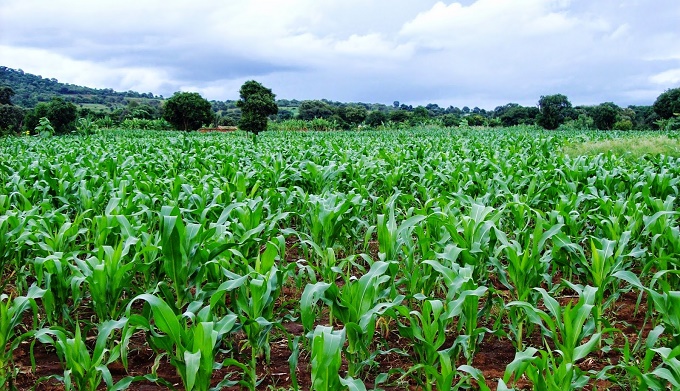Across various communities in Kaduna State, a major shift is quietly transforming the region’s agricultural landscape. More farmers are opting to cultivate vegetables instead of the traditional staple food crops that have long fed millions in Nigeria and beyond. The reason? Escalating costs of fertiliser and farm inputs, uncertainty over grain prices, and an economic squeeze that is reshaping survival strategies on the land.
Speaking to the News Agency of Nigeria (NAN) in Zaria, Professor Faguji Ishiyaku, former Executive Director of the Institute for Agricultural Research (Ahmadu Bello University, Zaria), expressed serious concern about this shift. According to him, “Input prices have not gone down, and right from the start, many farmers realised that planting crops like maize may be unprofitable under current conditions. That’s why many are now switching to pepper, chilli, soybean and cowpea.”
This transition, Ishiyaku warns, is not without risk. The country could find itself increasingly reliant on imported grains if local production of staples dwindles, which would undermine food security and weaken the economy. He stated, “A further reduction in grain cultivation could make us more dependent on foreign grain supplies, possibly endangering both self-sufficiency targets and national economic stability.”
If the trend continues, Nigeria may face sharp increases in the price of food commodities, the researcher notes. “Many smallholder farmers may struggle to feed their families if they do not produce enough of their own staple grains. This scenario could worsen food insecurity for vulnerable households,” he said.
Ishiyaku appealed to farmers to find a sustainable balance, encouraging the simultaneous production of vegetables and staple crops. “It is not too late—farmers can still plant maize, sorghum, and soybean in this current season,” he advised, suggesting a diversified approach to maintain incomes and safeguard food needs.
High Costs Driving Change in Farming Patterns
On the ground in Zaria, local farmers are candid about what’s driving these changes. Ahmed Abubakar, who has farmed in the region for years, shared that many have abandoned maize, sorghum, and rice for onions, chilli, pepper, okra, and other vegetables. “The prices of these grains crashed at the commodities market, reportedly due to grain imports into the country. At the same time, fertiliser costs have soared,” he said.
Concrete figures illustrate just how tight the margins have become. Abubakar explained, “A 100kg bag of maize now sells for between ₦38,000 and ₦45,000, depending on the variety. But a 50kg bag of Granular Diammonium Phosphate (GDAP) fertiliser is ₦75,000—meaning the price of a whole 100kg bag of maize, sorghum, or paddy rice can’t even buy a single bag of fertiliser.”
He continued, “NPK 20:10:10 sells at around ₦40,000 per 50kg bag, NPK 15:15:15 is over ₦50,000, and urea is ₦40,000. Plus, there are other production costs like herbicides and land preparation.” Faced with these economics, he claims, “Growing 100kg of pepper or soybean earns enough to buy two bags of fertiliser—unlike maize, which fetches far less. That’s why many are shifting to vegetables.”
Food Security at Risk
These changes come at a precarious time for Nigeria’s food supply. According to Abubakar, the country needs about eight million tonnes of maize per year but only produces 6.5 million, highlighting a yawning gap. Kaduna State, being one of Nigeria’s major maize-producing areas, could exacerbate national shortfalls with this pivot toward vegetables.
Agricultural extension agents, he explained, have advised farmers that the window for planting maize extends to July 16, while sorghum and rice can be transplanted from July 16-31. This timetable means farmers must make quick, strategic decisions to beat seasonal deadlines and maximise yields.
Abubakar’s plea is explicit: “We need government intervention to keep agriculture viable. Subsidised fertiliser and improved access to affordable inputs would do much to encourage grain production and keep food supplies stable.”
The Perspective of Farmers’ Associations
Local farming leadership echoes these concerns. Nuhu Aminu, Chairman of the All Farmers Association of Nigeria (AFAN), Kaduna chapter, stated that it’s not only smallholders but even some large-scale farmers who have opted out of food crop production due to spiralling input costs.
“This year, many large farms went fallow as the cost of starting production was simply too high. The burden falls especially on peasant farmers—those least able to adapt quickly or finance riskier crops,” Aminu explained. He emphasised, “It isn’t too late. There’s an urgent need to find balance and encourage both food and vegetable production to avoid triggering a food crisis down the line.”
Aminu lamented that neither the federal government nor relevant state agencies had distributed subsidised fertiliser or essential inputs for the 2025 wet season. “The lack of support is making things worse for farmers, especially as the rainy season advances. If this continues, our food supply chain could face severe strain,” he warned.
Regional and Global Implications
Nigeria, with its population exceeding 220 million, is Africa’s largest economy and a regional food powerhouse—its production trends influence markets in neighbouring countries like Ghana, Niger, and Benin. When local farmers in Kaduna State or any other major producing area cut down staple grain output, ripple effects may spread across West Africa, potentially increasing demand for imports or pushing up prices.
Experts note that while Nigeria is far from the only country grappling with soaring input costs, its unique status as a food exporter and engine of regional trade brings extra responsibility. According to Lagos-based agricultural analyst Oluwatobi Adegoke, “Nigeria’s output is key for regional food stability. If we continue to under-produce grains, not only our own citizens but also neighbours who rely on Nigerian maize or sorghum will be affected.”
Challenges and The Way Forward
Despite calls for government action, implementation has remained patchy. Compounded by climate unpredictability, insecurity in some rural areas, and market fluctuations, farmers are left weighing short-term gains from vegetables against the longer-term need for grains. While vegetables may fetch higher prices and faster returns, grains like maize and sorghum remain central to dietary needs and food security.
Experts, including Professor Ishiyaku, recommend targeted government intervention: subsidies, timely distribution of fertiliser, incentives for staple crop cultivation, and investment in extension services. Likewise, fostering cooperatives and improving agricultural credit could give farmers the security needed to balance their crop choices.
Others call for reviewing import policies that allegedly undercut local farmers, strengthening border enforcement, and investing in local processing industries to increase value-addition within Nigeria and the broader West African region.
Comparative Perspective
This issue isn’t unique to Kaduna or even to Nigeria. Across Africa, similar patterns are emerging as farmers respond to global shocks—ranging from the war in Ukraine’s impact on grain and fertiliser markets, to currency fluctuations and policy changes at home. In Ghana and Senegal, for example, agricultural groups have also reported reduced food crop acreage in favour of cash crops and vegetables, driven by many of the same economic pressures. The need for holistic regional solutions is ever more apparent.
Conclusion
As the new planting season advances, the choices made by Kaduna’s farmers echo far beyond local markets. The decision to grow more vegetables may provide short-term economic relief, but the country’s ability to feed itself in the years to come hangs in the balance. Balancing profitability for farmers with national—and regional—food security requires urgent action from all stakeholders, including robust policy support, pragmatic subsidies, and a renewed commitment to local food production.
How do you think government and communities can best support Nigerian farmers in tackling input costs while ensuring food security for all? Drop your thoughts in the comments and follow us for updates on agriculture and food supply.
Have a story, insight, or tip about agriculture or food supply challenges? Want to share your experience as a farmer or agricultural expert—or even sell your story? Email us at story@nowahalazone.com to get your voice featured or to discuss story submissions and sales.
For general support, reach out at support@nowahalazone.com.
Stay connected with us for the latest updates in Nigeria, West Africa, and beyond! Follow us on Facebook, X (Twitter), and Instagram for breaking news and in-depth features.










